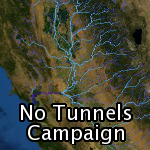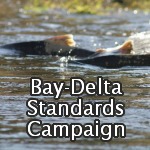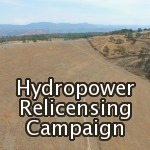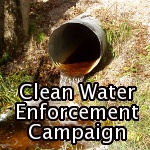CSPA is a formal protestant and party of record in the continuing battle over the Department of Water Resources (DWR) and U.S. Bureau of Reclamation’s (USBR) scheme to construct twin tunnels to divert the Sacramento River under the Delta to facilitate water deliveries to southern California that is now before the State Water Resource Control Board (State Board). Part IA & B, of the evidentiary hearing, is scheduled to last for 55 days and is focused on injury to existing legal users of water. Part II is scheduled for next year and will focus on harm to fisheries and public trust resources.
The concept that you can take millions of acre-feet of additional water from an estuary that has already been deprived of more than half its historical flow and not cause harm to existing individuals, fisheries and other public trust resources that depend on water quantity and water quality is, on its face, absurd. CSPA’s attorney Mike Jackson and FERC Projects Director and Water Rights Advocate Chris Shutes have relentlessly cross-examined DWR/USBR witnesses in Part IA of the hearing and exposed many of their distortions, misstatements and flaws in their direct testimony.
CSPA has riparian water rights at its property in Collinsville, near the junction of the Sacramento and San Joaquin Rivers. For Part IB, which will begin on 20 October 2016, CSPA has submitted testimony and supporting exhibits that establishes that it and other legal users of water will be grievously harmed by the WaterFix project. Specifically, CSPA’s Executive Director Bill Jennings, Chris Shutes, water quality consultant Dr. G. Fred Lee and fisheries biologist Tom Cannon provided extensive sworn testimony on fundamental flaws in DWR/USBR’s Case-in-Chief and the extent of injury that legal water users in the Delta will suffer should WaterFix be approved.
Jennings Testimony Shutes Testimony Dr. Lee Testimony Cannon Testimony









